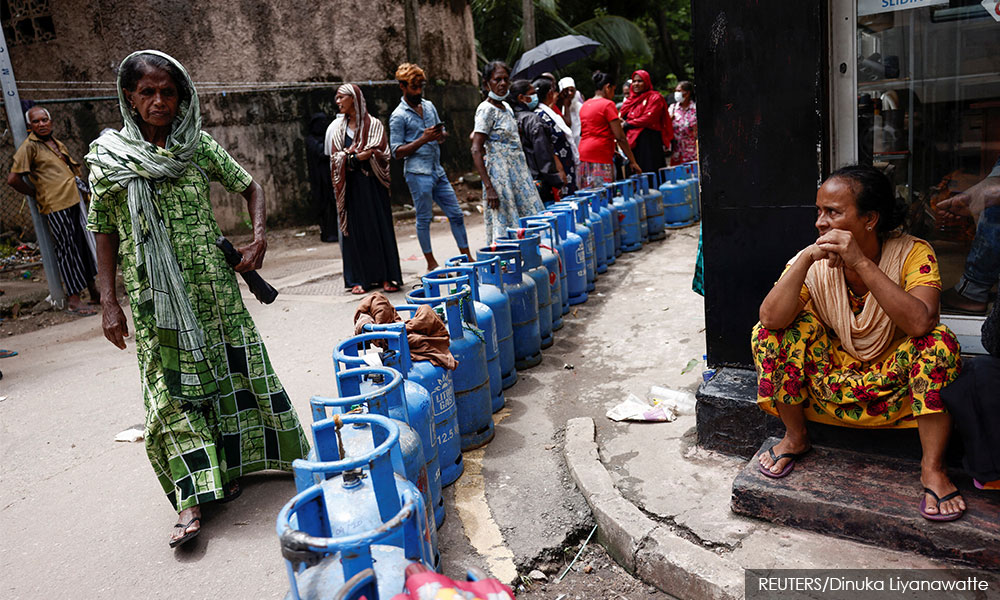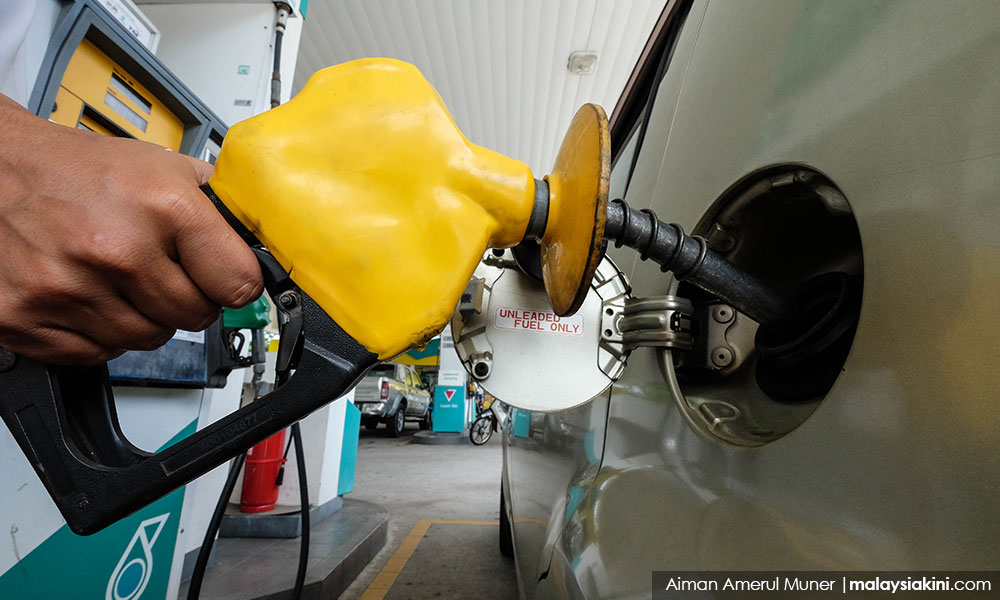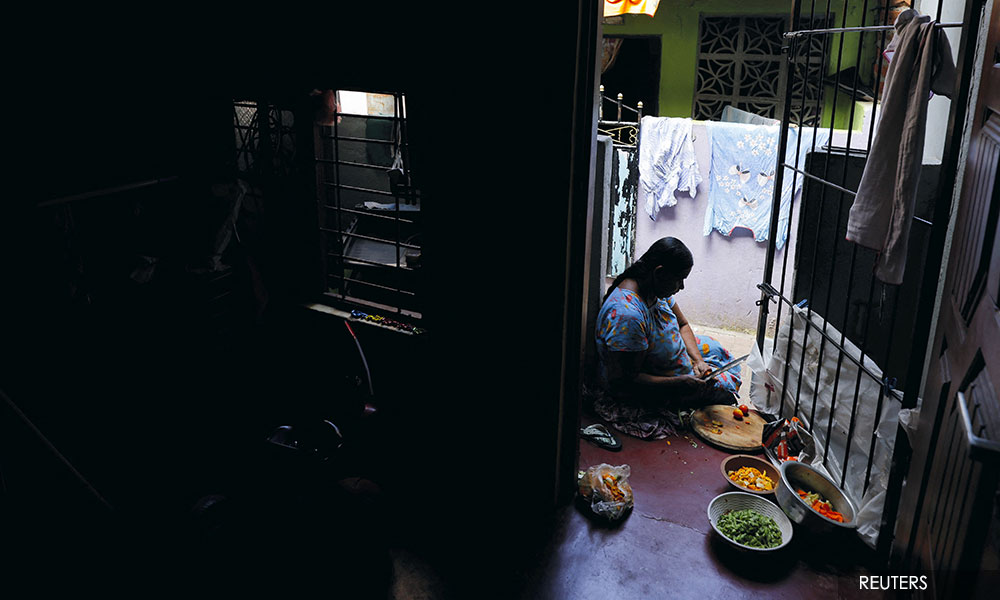It’s become rather fashionable for many of us to compare Malaysia’s situation with that of the failed, bankrupt, once rather promising state of Sri Lanka. Is that a valid comparison, are we really that bad, and if we are not already anywhere near close, are we already firmly headed down that path?
What lessons, if any, can we learn from Sri Lanka and can we draw parallels between them and us which would be useful for us? The answer is yes for some and no for others. Let’s get to it.
Right now, it’s really not a fair or reasonable comparison at all - Sri Lanka’s economy has collapsed - they don’t have enough reserves - just US$1.92 billion according to one report - ours was a very respectable US$116 billion at the end of last year.
Their trade balance was negative US$8 billion for 2020, ours was a positive US$63 billion for 2021 - we earn a considerable amount of foreign exchange to purchase our imports, they don't, which is why they can’t buy foreign goods.
Their debts are 101 percent of gross domestic product or GDP, the sum of goods and services produced in a year, ours 68 percent. Importantly, they don’t have enough foreign exchange to service their foreign debts, we have more than enough.

Sri Lanka also made the really bad move of banning fertiliser imports and relying instead on organic fertilisers which resulted in a major shortage of food production locally. This is an example of what bad decision-making by incompetents can do.
Moody’s rating is Ca for Lanka - that means highly speculative and likely in, or very near default, with some or little prospect of recovery in principal and interest.
Malaysia’s is A3 - it signifies that the issuer has financial backing and some cash reserves with a low risk of default. A-/A3 is the seventh-highest rating a debt issuer can receive and is four rankings above the cut-off for junk bonds - not great but not bad either.
In short, we are not anywhere near what Sri Lanka is now, make no mistake about that.
Are we vulnerable? Yes, if we go on like this for a long time - it may take a decade of massive mismanagement and corruption to get there and it would need successive bad governments. Our quality of government right now is the poorest it has ever been, so yes, we could be headed that way if we continue like this.
Subsidies
Sri Lanka defeated the separatist, Liberation Tigers of Tamil Eelam (LTTE) in 2009, giving rise to major optimism about the future. But a series of poor governments, including several involving the Rajapaksa family, brought the government to its knees this year amidst widespread public demonstrations.
Often people highlight Sri Lanka’s wasteful spending on food, fuel, and electricity subsidies to appease voters as one of the factors that caused this crisis, pointing to Malaysia’s government also spending a large amount on subsidies.
But our situation is considerably different. We are net exporters of energy, so we can afford to subsidise energy. The problem is who are we subsidising - high-energy consumers who tend to be rich. That’s the wrong thing to do.
For food, we were about to do the wrong thing by removing subsidies and lifting ceiling prices on chicken, eggs and cooking oil. But the government did a U-turn and instead now says a new ceiling price will be fixed. If that wrong decision was carried through, it would have caused major problems for the poor.
Chicken and eggs are the mainstay proteins for many Malaysians. Government figures indicate the subsidy on them is less than RM1 billion per year. Guess what the subsidy on fuel is - RM30 billion - cut that subsidy by just 3 percent and we easily cover the food subsidy for those three essentials.

So really the food subsidies don’t do much damage and help to feed the poor - give them nutrition. It’s the fuel subsidy that we need to watch because much of it goes to the rich who can afford to pay more.
In the longer term, we need to gradually decrease subsidies and give targeted help to the poor. As well, we need to be more self-sufficient in food to insulate ourselves from supply disruptions. I dealt with this issue here.
I further explained we are not feeding our children properly. Unicef figures indicate that in Malaysia, 20.7 percent of children under five suffer from stunting and 11.5 percent from wasting, 12.7 percent of children (5–19-year-olds) are obese.
That’s not flattering at all and extremely worrisome. We are far away from being developed in the full sense of the word. That’s why food subsidies are essential for now.
Nepotism and corruption
Commentators draw parallels between Sri Lanka’s nepotism caused by President Gotabaya Rajapaksa and his family who held key positions in government. But again, the situation is different in Malaysia.
We don’t have nearly as much nepotism here as in Sri Lanka where at one time the Rajapaksa family controlled most key ministries. But what is worrisome is the increasing corruption and patronage at all levels of society.
It has reached such levels that it is no longer a shame to be corrupt - for example ‘Malu Apa Bosku’. When criminals and to-be criminals are glorified and given a high place and respect within the ruling party we have to be really, really worried - that indicates the leadership and the party itself is rotten. That trend is nothing less than dangerous. We have to nip that in the bud.
The clear lesson from Sri Lanka is watch who you vote into power or pay the price. If you vote the incompetent and the corrupt in, that’s a sure recipe for disaster. It combines robbing with wrong decisions which have no professional insight and no intention to improve the welfare of the people, the worst possible combination of all.

Malaysia now would have been well on the way to reform if Dr Mahathir Mohamad had honestly wanted reform. But he returned to his old ways instead and chose a former discredited finance minister and buddy Daim Zainuddin to initiate change. It was no surprise that he eventually lost control.
The only way for Malaysians is to vote for the party which will be the best for the country. Choose wrongly and you will pay the price. Malaysians voted correctly in the last elections but the politicians, led by Mahathir and ably aided and abetted by Muhyiddin Yassin and Mohamed Azmin Ali betrayed them.
To vote back this bunch which betrayed us and who now rule through the back door and who have nothing but their own self-interests at heart is the most foolhardy thing we can do.
To return the country to some semblance of normality, the structural changes needed are known to all - crush corruption, pro-growth policies which are equitable to all, an excellent education system, a trained workforce, build national unity etc, etc.
We need honest, competent politicians for that and most of all, political will. Again, exercising our vote carefully and sending the right messages to all the political parties will be crucial.
As much as that power of choice remains in our collective hands, we must exercise it with caution and discretion. Sri Lanka’s lesson is this: Put power in the hands of the wrong people and they will destroy the country - eventually. - Mkini
P GUNASEGARAM, a former editor at online and print news publications, and head of equity research, is an independent writer and analyst.
The views expressed here are those of the author/contributor and do not necessarily represent the views of MMKtT.




No comments:
Post a Comment
Note: Only a member of this blog may post a comment.